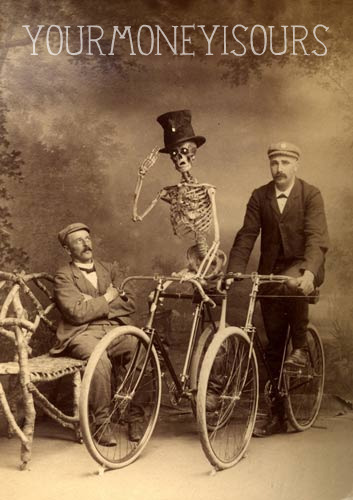I have realized that my blog has become less about my original thoughts and more about other people's thoughts that I tend to agree with...
Well, after you read this, you too will realize that they state things much more clearly and eloquently than I could imagine...
This is a quote by Jonathan Edwards in regard to the necessity of evil in the display of the glory of God...
Attn. all liberals and John Sanders-lovers: load your weapons...
“It is a proper and excellent thing for infinite glory to shine forth; and for the same reason, it is proper that the shining forth of God’s glory should be complete; that is, that all parts of his glory should shine forth, that every beauty should be proportionably effulgent, that the beholder may have a proper notion of God. It is not proper that one glory should be exceedingly manifested, and another not at all; for then the effulgence would not answer the reality. For the same reason it is not proper that one should be manifested exceedingly, and another but very little. It is highly proper that the effulgent glory of God should answer his real excellency; that the splendour should be answerable to the real and essential glory, for the same reason that it is proper and excellent for God to glorify himself at all.
Thus it is necessary, that God’s awful majesty, his authority and dreadful greatness, justice, and holiness, should be manifested. But this could not be, unless sin and punishment had been decreed; so that the shining forth of God’s glory would be very imperfect, both because these parts of divine glory would not shine forth as the others do, and also the glory of his goodness, love, and holiness would be faint without them; nay, they could scarcely shine forth at all.
If it were not right that God should decree and permit and punish sin, there could be no manifestation of God’s holiness in hatred of sin, or in showing any preference, in his providence, of godliness before it. There would be no manifestation of God’s grace or true goodness, if there was no sin to be pardoned, no misery to be saved from. How much happiness soever he bestowed, his goodness would not be so much prized and admired, and the sense of it not so great, as we have elsewhere shown. We little consider how much the sense of good is heightened by the sense of evil, both moral and natural.
And as it is necessary that there should be evil, because the display of the glory of God could not but be imperfect and incomplete without it, so evil is necessary, in order to the highest happiness of the creature, and the completeness of that communication of God, for which he made the world; because the creature’s happiness consists in the knowledge of God, and sense of his love. And if the knowledge of him be imperfect, the happiness of the creature must be proportionably imperfect; and the happiness of the creature would be imperfect upon another account also; for, as we have said, the sense of good is comparatively dull and flat, without the knowledge of evil.”
The Works of Jonathan Edwards: Remarks on Important Theological Controversies (Chapter 3: Concerning the Divine Decrees in General, and Election in Particular), Originally published in 1834.
Sunday, February 22, 2009
Editor's Note
Posted by
Brandon
at
11:57 AM
![]()
Subscribe to:
Post Comments (Atom)


0 comments:
Post a Comment